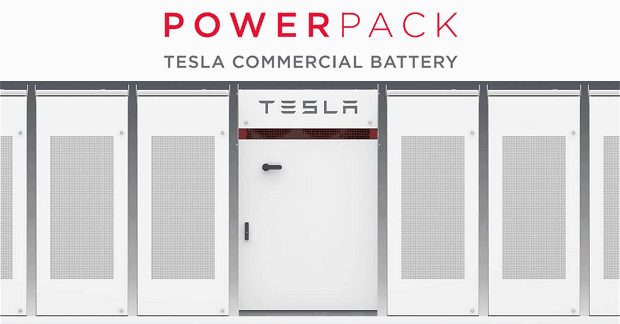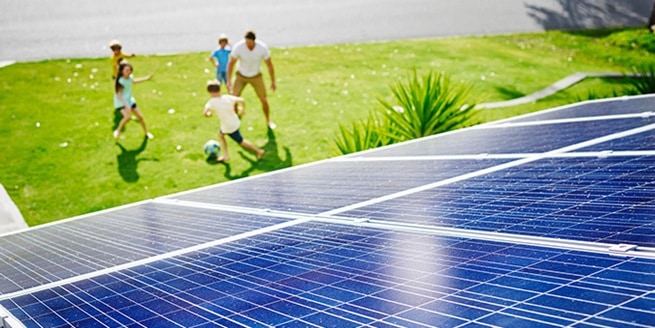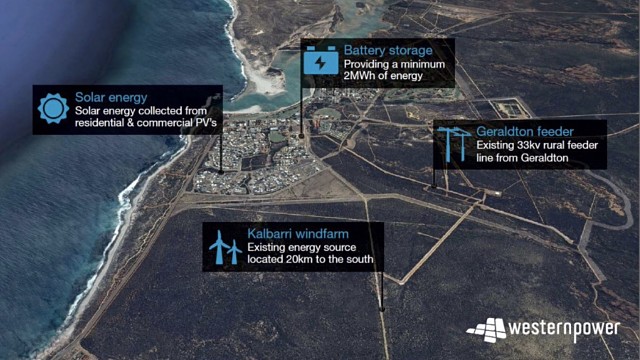An official announcement by the Government of Western Australia on Wednesday notes that they will partner with Western Power and Synergy to offer a Tesla PowerBank trial via a 105kW (420kWh) Tesla PowerBank battery.
PowerBank trial for WA Homes.

The 24 month trial period means that customers participating will be able to ‘virtually’ store excess power they generate during the day (it’ll be fed into the utility-scale 105kW Tesla PowerPack Battery). They can then use 8kWhs of the PowerBank’s battery storage without needing to install their own power bank. According to the press release (and it’s true!), “8kWhs is enough to power the average suburban home for over one hour during peak time.”
Energy Minister Ben Wyatt discussed the Tesla PowerBank trial in a series of interesting quotes which explain how helpful this trial could be to Mandurah residents:
“PowerBank is an ‘in front of the meter’ storage trial which allows invited local customers to store excess electricity from already installed solar PV systems to then use it during peak times.
“This is another Australian milestone for the application of utility-scale batteries for the benefit for customers, drawing on the groundbreaking work by Synergy in its Alkimos Beach energy storage trial.
“For the first time in Australia, a utility-scale battery will be integrated into an established suburb’s network, like Meadow Springs, that has a high level of existing solar PV uptake.
“At the cost of one dollar a day, customers will have access to 8kWh of battery storage to use any time after 3pm each day.
“This trial shows that the WA Government is serious about working with renewables, delivering for taxpayers and planning for our energy future.”
Click here to view the media statement from the WA state government.



